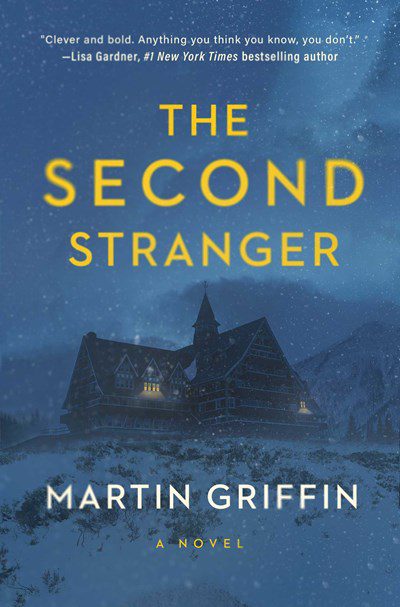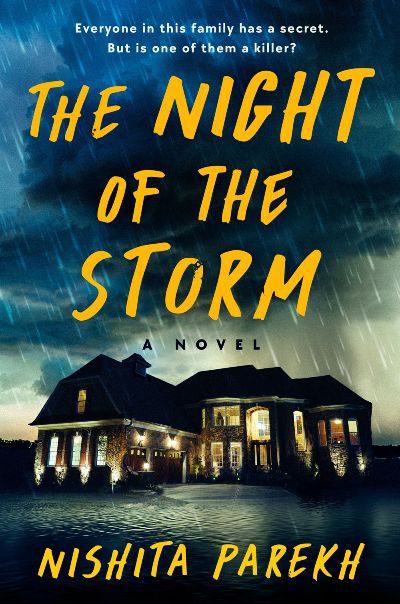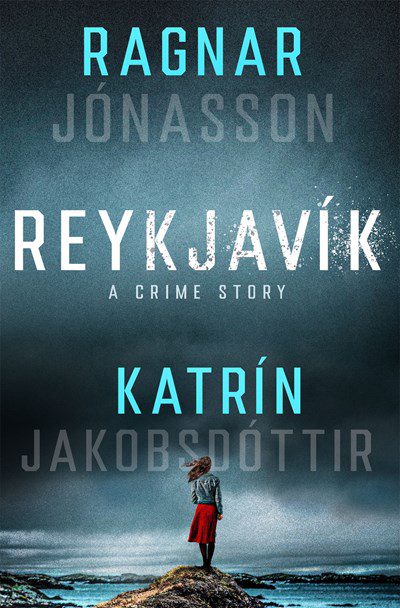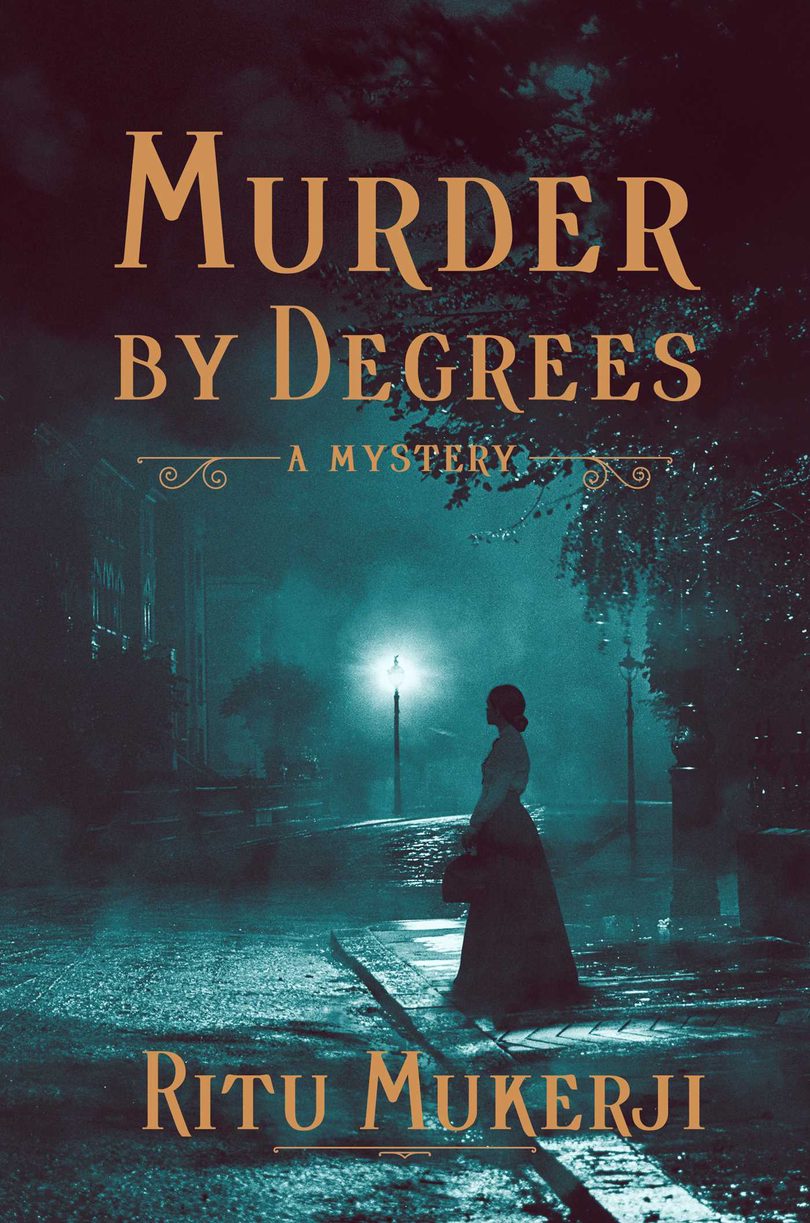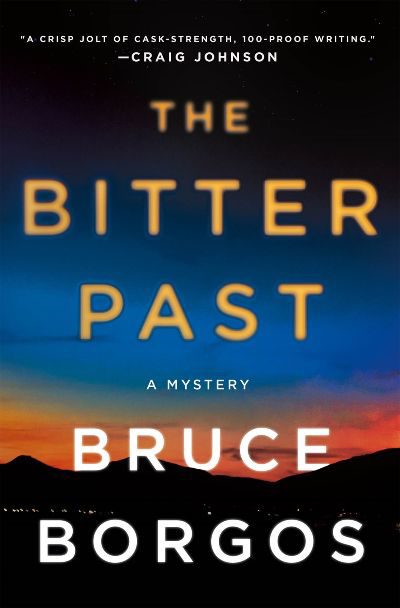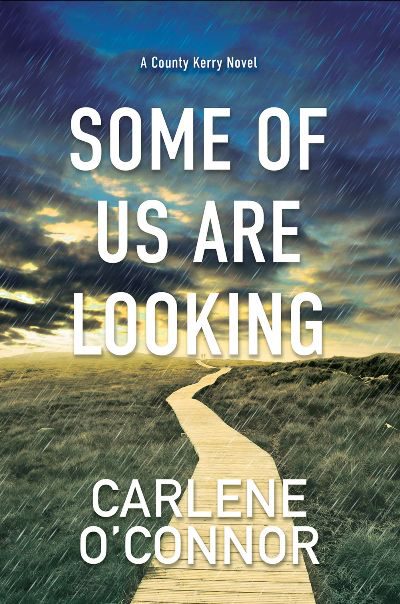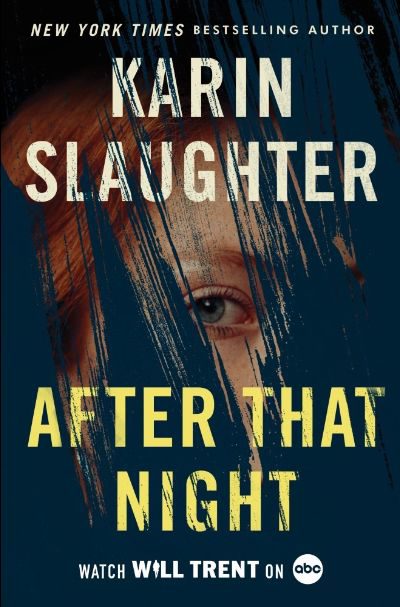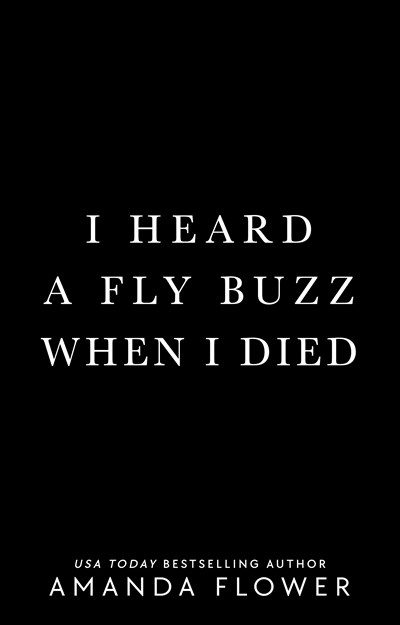An incredibly taut “locked inn” suspense novel that features just a handful of characters over an intense eight hours. We’re in a small hotel in the Scottish Highlands with a blizzard raging. It’s incredibly remote, and the only other sign of life is Porterfell, a prison far in the distance. It’s Remie Yorke’s last night managing the hotel—not that there is that much to manage with just two guests, one of whom has disappeared. In the morning, Remie will be on her way to Chile with no plans to ever return to Scotland. Meanwhile, the hotel grows even more isolated as the roads shut down and phone lines and internet access die. Suddenly a police officer, Don Gaines, appears. Beat-up, he claims to have been in an accident transporting a prisoner from Porterfell—a dangerous prisoner who’s now on the loose. Gaines goes about securing the hotel, when another officer shows up claiming to be Officer Don Gaines. He’s just as convincing, with the appropriate identification. Will the real Donald Gaines please stand up? Lest it seems as though I’m sharing spoilers, be assured that this is just the beginning. There’s plenty more to be revealed in this absolute nail-biter of a thriller.
Mystery & Detective
The scene: Hurricane Harvey hitting affluent Sugar Land, TX, in 2017. Readers will fear the worst, knowing how bad the storm became, but Jia Shah feels she’ll be safe at her sister Seema’s sprawling, ostentatious house. Her brother-in-law, who luckily knows everything, assures all that nothing can happen to his house. Misogyny’R’Us mother-in-law and overbearing sister notwithstanding, Jia believes that once she and her son ride out the storm—and her family’s endless comments about her dire fate as a divorcee—they can get back to life as they knew it. Then Jia notices that the neighborhood seems curiously empty. Except, that is, for a neighbor who stares in the window. Soon things become far more than just creepy as the bodies start to pile up. Debut author Parekh builds tension wonderfully as the storms outside and inside the house threaten to wipe out everything Jia holds dear; she also excels at provoking exasperation at the backbiting family’s antics while crammed into an inescapable nightmare. For those who like locked-room and closed-circle dramas.
A classic mystery from Katrín Jakobsdóttir, Iceland’s prime minister, and bestselling Icelandic crime writer Ragnar Jónasson. Back in 1956, a 14-year-old girl, Lara, disappeared without a trace at the end of the summer. She had been working as a maid for a well connected couple who spent summers on Videy, a remote island off the coast from Reykjavík. Eventually, Lara’s disappearance became Iceland’s most infamous unsolved case. On the 30th anniversary of the event, Valur Robertsson—a young, ambitious journalist—takes up the case, publishing a series of articles that imply he has new information, setting the nation on edge. But just when the public expects a revelation, the narrative takes a 180-degree spin, and the threat of violence becomes all too real. While it’s a well-done mystery, Reykjavík also provides tremendous insight into Iceland at a time of change, expasnion, and corruption. Sure to appeal to a broad swath of crime-fiction readers.
Set in post-Civil War Philadelphia, this is historical crime fiction that goes deep into the many strata of society, from recent immigrants to medical students, from the police to the very rich. At its heart is Dr. Lydia Weston, practicing medical doctor and professor at the Women’s Medical College. When Anna Ward, a patient of Lydia’s, is found dead in the Schuylkill River, Lydia refuses to believe she died by suicide. Instead, Lydia manages to become part of the police investigation. Fortunately, Anna kept a diary, and by examining the patient’s writings and her cadaver, Lydia is able to begin to piece together some of what happened. Anna’s story takes us all over the city, displays the antipathy so many had for women doctors, and exposes the risks Lydia took to solve the murder. For readers who love to be transported to another era. Fans of Jacqueline Winspear and Victoria Thompson will love this book.
The third in the Two Rivers series has DI Matthew Venn and colleagues off to the tiny town of Greystone on the Devon coast. While much of Devon is popular as a vacation spot, Greystone’s color palette (gray, grayer, and grayest) combined with the dark, turbulent sea makes for a forbidding destination. To the locals’ delight, Greystone’s only celebrity, Jem Rosco, a famous sailor and adventurer, has returned. He spends his nights in the local pub, where he lets it be known that he’s back in town to meet up with someone special. A former lover? Perhaps. Except Rosco suddenly disappears before we find out, his body found naked, curled up in the bottom of a dinghy that’s anchored in a cove. A cove with a superstitious history. With her usual brilliance, Cleeves balances Venn and Co. as they spread out across the town seeking information while also drilling deeply into the lives of a handful of leading suspects. Personal tensions arise. Matthew’s team members compete with one another. Matthew himself is uncomfortable in Greystone, having spent part of his cult-ridden childhood in the town. And Jonathan, Matthew’s husband, has a secret he’s not ready to share. When this novel ends, it’s with a bang, not a whimper, sure to delight readers of what is one of the very best series being written today.
The high desert of eastern Nevada is Borgos’s setting for this series debut, and it opens with the most violent death Sheriff Porter Beck has seen. A retired FBI agent, Ralph Atterbury, looks to have been tortured for hours, his skin removed in strips and his nipples blowtorched. It can’t be a routine break-in, but what could the man have done that would inspire such rage? Flashing back to supposedly a more apple-pie time, Nevada in the Cold War, we meet Freddie Meyer, a young man who’s humble enough to go steady with Kitty Ellison, a bookish girl who “wasn’t the most striking” of her friends. In due course, Kitty’s physicist father helps Freddie get a job—he’s just so gosh-darn grateful!—at the nearby atomic testing site’s top-secret project. Readers are let in on the audacious, almost unbelievable plan that unfolds, one that Beck slowly uncovers as he seeks the identities of Atterbury’s killer and a Russian spy who he believes worked at the testing site all those years ago. Beck has the nice-guy relentlessness that readers love in an investigator. His love interest, present-day FBI agent Sana Locke, adds wiles and beauty, and the Cold War storyline is gripping. I can’t wait for the next from Borgos.
O’Connor’s second tale starring rural Irish veterinarian Dimpna Wilde at first has all the markings of a cozy. A female protagonist whose job is a magnet for drama, animals—including a talking African grey parrot called Bette Davis,who plays a major role in the story—and a love interest who’s in law enforcement. But cozies usually involve a sanitized crime, and this is where O’Connor takes a decided swerve out of the gentle side of the genre. The murder mystery that Dimpna finds herself enmeshed in is the killing of a young woman, Brigid, who early in the story shows up at the vet clinic with an injured animal. It’s a hare that has a cut on its leg from someone, Brigid says, trying to remove its foot. The gruesome motif is repeated when Dimpna finds Brigid tied to a tree, dead and with her hand cut off. At the same time, chalked graffiti around the town asks, “Who put Bella in the witch elm?”, just one of the intertwined puzzles facing Dimpna and the man she’s falling for, Inspector Cormac O’Brien, as they investigate the town’s many intriguing residents and visitors. While this absorbing story stands well on its own, you’ll want to go back to the first in the series, No Strangers Here, to spend more time with this smart, kind vet and her knack for attracting trouble.
Nothing was ever the same for Sara Linton after the night she was attacked. Though the police apprehended the culprit, Sara has struggled to deal with the trauma ever since. She’s now engaged to GBI Special Agent Will Trent, and they are crafting wedding plans. When Sara promises to pursue justice for another young woman, who dies, she has no idea that this will force her to confront the darkness and memories she has been avoiding for years. Will wants to help, and what they uncover leads to connected attacks with ties to recent incidents. Slaughter is a master of telling a story with horrific elements and spinning it to be both clinical and compelling. She dives into the characters we love and provides more insight into what has made them who they are, which makes them come alive on the page. The ABC television series Will Trent was recently renewed for a second season, and its popularity will steer readers to pick up this book. Whether a newcomer to the series or a fan who has read the previous entries, readers will find this one of the best to date.
Flower does a magnificent job of opening up the world of mid-19th century Amherst, the Dickinson family, and especially young Emily, who has yet to become the eccentric recluse of her later years. In this volume, Austin and his wife have returned from their wedding trip and moved into the mansion next door to the family home, just in time to welcome their houseguests Ralph Waldo Emerson—who has come to lecture at Amherst College—and his secretary, Luther. Narrated by Emily’s maid Willa Nobel, we’re privy to all the family gossip, while Emily seeks a way to share her writing with Emerson. But the death of young Luther, who’s found in a bed of black-eyed Susans, sets Emily and Willa on a path to satisfy the great Emerson’s questions, quell the vociferous speculation, and clear the Dickinson name. This series is historical crime fiction at its best, balancing insight into the past with a fast-moving investigation into the crime.
You’ll find it hard not to root for both sides in two-time Edgar winner Goldberg’s latest, which pits arson investigators against a Robin Hood-like ex-con who sets a wildfire to consume what his enemies hold most dear: their possessions. The investigators are Walter Sharpe, a veteran of California fires who’s nicknamed Sharpei for his don’t-care physique and his newbie partner, Andrew Walker, who’s eight-months-pregnant wife begged him to take this job so that he will get home for dinner every night. But things get, ahem, hotter than the duo plans when con-man Danny Cole is released from his time in prison, which he spent as a firefighter, with years of nothing but planning under his belt. While this is a series debut, the fire depicted is the same one that featured in the author’s Lost Hills; fans of that book should know that this one looks at the inferno from a different perspective and involves a different crime story. Both fans and newcomers to Goldberg’s work will enjoy the fast-moving, at times terrifying, tale and its close look at firefighting and arson-investigation techniques. A bonus is the companion buddy story featuring likable new police-procedural partners and their unusual focus

